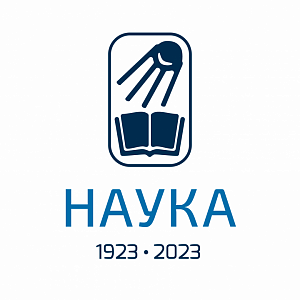Article
Thermophysical Properties of Materials
2013. V. 51. № 4. P. 457–464
Bobrov V.B., Mendeleev V.Ya., Triger S.A., Heijst G.J.F.van, Schram P.P.J.M.
The theory of a metal-insulator transition at zero temperature and features of the dielectric function in the Coulomb model of matter
Annotation
A metal-insulator transition at zero temperature for a material that is a quantum nonrelativistic Coulomb system of electrons and nuclei of one type has been considered in analyzing the features of the dielectric function beyond the adiabatic approximation for nuclei. It has been found that the isothermal compressibility of the material diverges at the metal-insulator transition. The static conductivity vanishes because the screening length of the Coulomb interparticle interaction in the “true” dielectric state is larger than any characteristic size and the screening effect is reduced to only a change in the interaction amplitude. In the presence of the density range corresponding to the true dielectric state, the material is highly probable in the self-compressed state characterized by zero pressure. The possibility of the description of such a state in the adiabatic approximation for nuclei of the material has been considered using the virial theorem.
Article reference:
Bobrov V.B., Mendeleev V.Ya., Triger S.A., Heijst G.J.F.van, Schram P.P.J.M. The theory of a metal-insulator transition at zero temperature and features of the dielectric function in the Coulomb model of matter, High Temp., 2013. V. 51. № 4. P. 457
Bobrov V.B., Mendeleev V.Ya., Triger S.A., Heijst G.J.F.van, Schram P.P.J.M. The theory of a metal-insulator transition at zero temperature and features of the dielectric function in the Coulomb model of matter, High Temp., 2013. V. 51. № 4. P. 457







